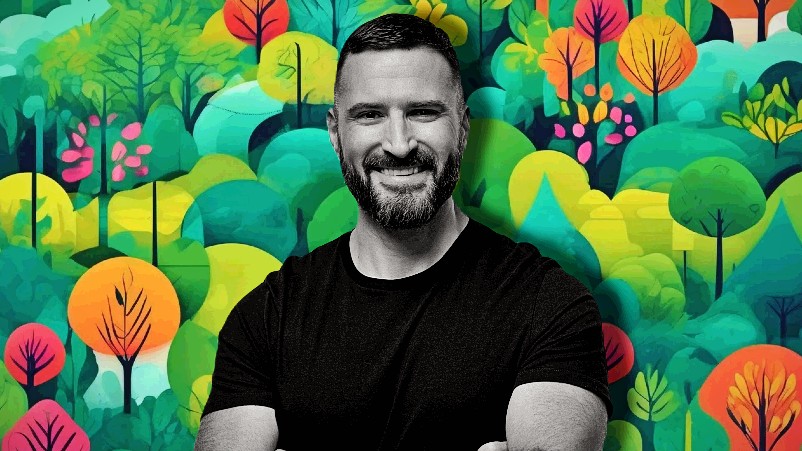Former Telstra CEO, Xero Chair, David Thodey versus 16 blue chip CMOs on what next for consumers, brands, the sustainability crisis and innovation
An Mi3 editorial series brought to you by
Accenture Song


The widely regarded David Thodey challenged CMOs to step up on sustainability and innovation to company leadership and boards in an invite-only roundtable series – The Value Creators Forum.
An Mi3 editorial series brought to you by
Accenture Song

The widely regarded former CEO of IBM and Telstra and current chair of the $17bn tech darling Xero, payments group Tyro and the CSIRO, David Thodey (AO), opened the first of an invite-only six-part, Mi3-Accenture roundtable series – The Value Creators Forum – with 16 of Australia’s top CMOs. To ensure candour, there’s no names or attributing quotes under the Chatham House Rule, but the high-energy, robust debate traversed why boards, company leadership and brands and marketing are lagging the world in the global sustainability crisis. And more broadly, what’s holding back broader business innovation in Australia. Does marketing have a role to play and if so, why isn’t it? Here’s Mi3’s abridged account of the lively, three-hour dinner debate.
We’ve got the data…those horrible bush fires are coming again in the next five years. People are building houses in places that are going to be floodplains on the Gold Coast. Parts of Western Sydney will be unliveable. It’s not going to be as exceptional as we think.
Sustainability and innovation laggards
David Thodey received his AO in 2017 for ethical business leadership. He meets monthly with a high-powered group of blue chip company leaders to work through climate change response strategies and until last December Thodey was Deputy Chair of the Federal Government’s National COVID-19 Coordination Commission Advisory Board.
We can name Thodey as the business leader who opened the first of six Value Creators Forum roundtables but we can’t quote him, per the Chatham House agreement.
While opinions ranged wildly between CMOs on why and how to address Australia’s lagging credentials on sustainability and innovation, there was solidarity on four critical themes:
- Australia is a global laggard in innovation – except in mining where it leads the world in how efficiently we dig.
- The climate crisis is real and the imperative profound for companies to develop and deliver on net zero emissions for their operations and products, but Australian business is well behind the world in reconfiguring their product and supply chains.
- Consumers and communities are open to behavioural change and preferencing sustainable products and services (60 per cent according to some cited research) but need well-planned, exceptionally communicated transitions to mitigate pushback – Coles’ troubled move to end plastic bag use was a topic of feisty discussion.
- 75 per cent of global marketers in a recent study said they were not ready to tell their company’s sustainability story because they didn’t have confidence the enterprise was ready.
The way to get Australia to care about sustainability is to link it to house prices.
Marketers are sustainability’s silent lambs
The journey to sustainability and innovation is proving precarious for some and liberating for others.
Frustration was palpable from parts of the room in how Australian supermarkets stymie, indeed punish, suppliers with advanced environmental and social governance (ESG) strategies versus retailers in Europe where the exact opposite transpires.
Moreover, company culture, resolve and ability of boards and leadership to act and deliver quarterly results to investors without punishment was debated at length.
But the roundtable generally accepted marketing is missing in action for contributing to and influencing boards and leadership on innovation and sustainability.
The marketing group in a way, is the voice of the market. But where are the marketers coming forward? They are missing.
“Usually it’s the sustainability people coming forward, not the marketing people,” said one. “The marketing team need to be more aggressive in talking about it. Sustainability is very much on the board agenda. There’s a lot of receptivity for ideas. The marketing group in a way, is the voice of the market. But where are the marketers coming forward? They are missing.”
There was some pushback from marketers, however, on internal politics. Some pointed to the role and influence of corporate affairs and investor relations whose risk appetite skewed to staying under the radar and remaining small targets instead of engaging and advancing public awareness and behavioural change.
For now it’s mostly parts of the global investment, finance and insurance sectors that are the lead global and local players in responding to and forcing through change on the climate crisis.
“It’s actually a short-term issue,” said one. “If you want to issue debt bonds, you can get 20 to 50 basis points off by having a good ESG strategy.”
Australia is faltering too with its innovation credentials – we’re now ranked 47 in the global index for innovation – and venture capital firms domiciled here are moving offshore with their money.
The government spends circa $10bn on research and development funding and Australian universities are prolific producers of scientific papers – but commercialising that IP is a major fault line.
We defined five sustainable attributes across a pool of 500 vendors and partners…we allowed customers to shop by their values. Sales for the brands featured in that campaign averaged 47 per cent growth year-on-year.
The consumer conundrum
So what becomes? Let’s start with consumers, where marketing historically has been the gateway to the enterprise.
One CMO pointed to a study that suggests 75 per cent of global marketers weren’t ready to tell their company’s sustainability story because they didn’t have confidence their company was ready.
That led to robust debate around how much marketing should be focused on “story telling” versus creating tangible initiatives and action inside the company first. While some argued that consumer attitudes and behavioural change could be expedited with compelling communications efforts, others wanted less talk, more do.
“I just think about the sustainability team coming to me and saying we need an ad campaign telling everyone our packaging is 100 per cent recyclable and it’s going to cost $5m. That’s possible but you could just write in huge letters '100 per cent recyclable' on every pack and the message will get through.”
One CMO said their marketing team had triggered broader company sustainability initiatives simply by showing how centralising packaging from disparate product divisions with recyclable materials produced cost saving upwards of 50 per cent and contributed to the company’s zero emission target.
“Marketing gave everyone a bit of confidence internally. Everybody loved it and so the product teams are now doing some really interesting things.”
Another CMO in the retail sector told a similar story after the marketing team devised a sustainability-skewed marketing program that landed so well with customers – and sales – that their peers in merchandising and buying have awoken to the possibilities.
The consumer wants to know about sustainability. They’re willing to participate and they want to be part of the journey. This is more about trust than it is the readiness of the solution. Storytelling is actually the hardest part of it all.
“The retail operations are now starting to engage more. Sometimes it does need to start with something small inside your company.”
But one CMO who is also central to their firm’s sustainability remit said the technical ability and awareness internally to reengineer practices and products in their enterprise already exists. The greater challenge is telling the sustainability story to the public in a way that is both meaningful and authentic.
“When I look at the challenges we’ve got to deliver against our [zero emissions] targets, it’s not the technical capability to do it, it’s the ability to tell the story to consumers in a way that’s comprehendible, builds trust and actually gets them to make a choice that gives you a preferential outcome for the economic investment you’ve made,” they said. “The consumer wants to know. They’re willing to participate and they want to be part of the journey. This is more about trust than it is the readiness of the solution. Storytelling is actually the hardest part of it all.”
Why Coles failed
The roundtable eventually engaged in spirited debate on what happened when Coles moved to phase out plastic bags. If the consumer research is right that people want to back more sustainable choices, why did Coles fail so miserably? Why was the public fallout so great that Coles reversed its policy?
Well, planning and communication and preparing customers for the huge shift was the central problem. It was too fast and lacked preparation. It was a critical point as CMOs wrestled on the night with the perpetual conundrum of what people say versus what they do. The consensus was that preparing customers for a clear, well-planned, communicated and executed transition on these sorts of initiatives is the difference between success and bombing.
The solutions for sustainability are there but the willingness to trade margin sacrifice in the short-term isn’t because most companies didn’t have the foresight others [like Patagonia] had 20 years ago to work on sustainable supply chains and product.
The wrap
After two hours of debate and perspectives, the roundtable finished with several key points: marketers inside most large enterprises need to bring more ideas for action to company leadership and boards, through the lens of consumers, customers, communication and brand risk. Everyone’s now thinking.
“One of the major blockers for marketers getting involved is actually the fear around consumer cynicism. Marketers play a critical role in knowing what it takes to land a long-term proposition with consumers and for the brand,” said one CMO who is also a Board Director.
David Thodey may or may not have agreed. And he may or may not have said marketing needs to step up – and has the credibility to do so – but with a broader understanding of the investor pressures facing leadership and boards. He may have said that. We can’t say.






